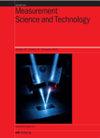快速射线追踪法评估ERA5和MERRA2在检索全球对流层延迟方面的性能
IF 3.4
3区 工程技术
Q1 ENGINEERING, MULTIDISCIPLINARY
引用次数: 0
摘要
大气再分析在利用空间大地测量技术的射线追踪检索大气对流层延迟方面发挥着重要作用。为了更好地表现复杂的天气和气候条件,新开发的大气再分析产品的时空分辨率显著提高。时空分辨率的提高为提高射线追踪得出的对流层延迟的精确度提供了一个很好的机会,但由于计算成本大大增加,这仍然是一个挑战。在本文中,我们开发了一种具有精细高度间隔确定功能的快速射线追踪方法,以适应大气再分析产品时空分辨率的提高。2010 年国际大地测量协会(IAG)工作组 4.3.3 射线追踪比较运动参考结果验证了该方法的准确性。通过跟踪全球 342 个国际全球导航卫星系统服务站,获得了天顶和倾斜延迟。与传统方法相比,在保持精度的同时,内存占用减少了 16.1%,全球折射率场构建时间减少了 13.6%,每次射线跟踪时间减少了 22.5%。基于这种方法,在 342 个 IGS 站使用最先进的第五代欧洲中期天气预报中心(ECMWF)再分析(ERA5)和第二代现代研究和应用回溯分析(MERRA2)进行了射线追踪,评估了 2021 年对流层延迟性能。结果表明,ERA5 和 MERRA2 的斜面延迟和制图因子差异明显,最高可达分米级,尤其是湿分量。此外,以IGS天顶总延迟(ZTD)为参考,ERA5 ZTD偏差和均方根误差(RMSE)分别为2.3毫米和11.9毫米,而MERRA2 ZTD偏差和均方根误差分别为1.8毫米和16.2毫米。在 2021 年 8 月 5-9 日受极端天气影响的 AIRA 站,ERA5 ZTD 的平均值和均方根误差分别为-3.0 和 19.8 毫米,而 MERRA2 ZTD 的平均值和均方根误差分别为-5.3 和 21.7 毫米。由于性能和时间分辨率的提高,ERA5得出的对流层延迟和模型可支持空间大地测量应用。本文章由计算机程序翻译,如有差异,请以英文原文为准。
A rapid ray tracing method to evaluate the performances of ERA5 and MERRA2 in retrieving global tropospheric delay
Atmospheric reanalysis plays an important role in retrieving the atmospheric tropospheric delays with ray tracing for space geodetic techniques. In order to represent the complex weather and climate conditions better, the spatiotemporal resolutions of the newly developed atmospheric reanalysis products are improved significantly. The increased spatiotemporal resolution provides a great opportunity to improve the accuracy of the tropospheric delays derived from ray tracing, but it remains a challenge due to the highly increased computation costs. In this paper, we develop a rapid ray tracing method with refined height interval determination to accommodate the increased spatiotemporal resolution of the atmospheric reanalysis products. The accuracy of this method was validated by the 2010 International Association of Geodesy (IAG) Working Group 4.3.3 ray tracing Comparison Campaign reference results. Zenith and slant delays were obtained by tracing 342 global International GNSS Service (IGS) stations. Compared to the traditional method, this reduced memory footprint by 16.1%, global refractivity field construction time by 13.6%, and per ray trace time by 22.5% while maintaining accuracy. Based on this methodology, ray tracing using state-of-the-art fifth-generation European Centre for Medium-Range Weather Forecasts (ECMWF) Re-Analysis (ERA5) and second Modern-Era Retrospective Analysis for Research and Applications (MERRA2) at 342 IGS stations assessed tropospheric delay performance in 2021. Results showed significant ERA5 and MERRA2 slant delay and mapping factor differences up to the decimeter level, especially for the wet component. Additionally, using IGS Zenith Total Delay (ZTD) as a reference, ERA5 ZTD bias and Root Mean Square Error (RMSE) were 2.3 and 11.9 mm, versus that of 1.8 and 16.2 mm for MERRA2 ZTD. At extreme weather-affected AIRA stations over August 5-9, 2021, ERA5 ZTD mean and RMSE differences were -3.0 and 19.8 mm, and -5.3 and 21.7 mm for MERRA2 ZTD. Tropospheric delays and models derived from ERA5 can support space geodetic applications given improved performance and temporal resolution.
求助全文
通过发布文献求助,成功后即可免费获取论文全文。
去求助
来源期刊

Measurement Science and Technology
工程技术-工程:综合
CiteScore
4.30
自引率
16.70%
发文量
656
审稿时长
4.9 months
期刊介绍:
Measurement Science and Technology publishes articles on new measurement techniques and associated instrumentation. Papers that describe experiments must represent an advance in measurement science or measurement technique rather than the application of established experimental technique. Bearing in mind the multidisciplinary nature of the journal, authors must provide an introduction to their work that makes clear the novelty, significance, broader relevance of their work in a measurement context and relevance to the readership of Measurement Science and Technology. All submitted articles should contain consideration of the uncertainty, precision and/or accuracy of the measurements presented.
Subject coverage includes the theory, practice and application of measurement in physics, chemistry, engineering and the environmental and life sciences from inception to commercial exploitation. Publications in the journal should emphasize the novelty of reported methods, characterize them and demonstrate their performance using examples or applications.
 求助内容:
求助内容: 应助结果提醒方式:
应助结果提醒方式:


